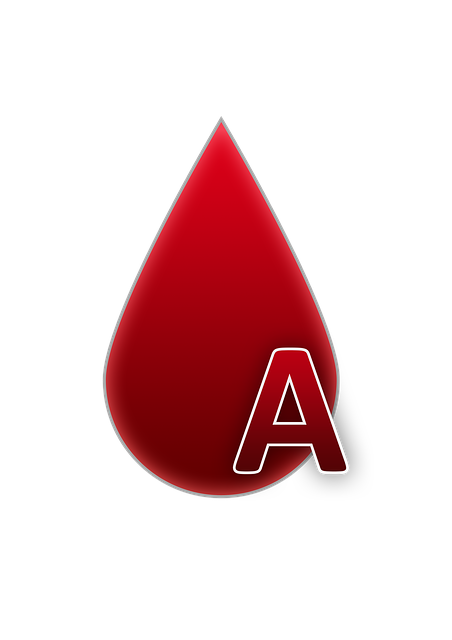Iron deficiency anemia, characterized by low hemoglobin and healthy red blood cells, presents symptoms like fatigue, weakness, and shortness of breath. Early detection through regular health check-ups, including the Cholesterol Blood Test UK, is crucial. This test assesses hemoglobin levels, ferritin (indicating iron deficiency), and other blood components. Integrating this diagnostic method with complete blood counts enables holistic evaluation and effective treatment planning for anemia. In the UK, a Cholesterol Blood Test is vital for cardiovascular health, monitoring LDL and HDL cholesterol, and triglycerides, guiding lifestyle changes or medication as needed.
Iron deficiency anemia is a common yet serious health condition, often caused by insufficient iron intake or absorption. This can lead to fatigue, weakness, and shortness of breath. Blood tests play a crucial role in diagnosing this condition accurately. In the UK, a comprehensive health assessment may include a cholesterol blood test, offering valuable insights into overall well-being alongside iron levels. Understanding these tests is essential for timely treatment and management.
- Understanding Iron Deficiency Anemia and its Symptoms
- The Role of Blood Tests in Diagnosing Iron Deficiency Anemia
- Cholesterol Blood Test UK: What You Need to Know for Comprehensive Health Assessment
Understanding Iron Deficiency Anemia and its Symptoms
Iron deficiency anemia is a common blood disorder where the body lacks enough healthy red blood cells, which are responsible for carrying oxygen throughout the body. This condition occurs when there’s an inadequate amount of iron, a key component in producing hemoglobin, the protein that gives red blood cells their ability to transport oxygen. Symptoms can include fatigue, weakness, pale skin, shortness of breath, dizziness, and headache. Many people with iron deficiency anemia may not experience any symptoms at all, especially if the condition develops gradually.
Regular health check-ups often involve a simple Cholesterol Blood Test UK, which can help identify potential issues early on. This test measures various elements in the blood, including hemoglobin levels, that can indicate the presence of anemia. Understanding the symptoms and knowing when to get tested are crucial steps in managing iron deficiency anemia effectively.
The Role of Blood Tests in Diagnosing Iron Deficiency Anemia
In the diagnosis of iron deficiency anemia, blood tests play a pivotal role by providing essential insights into the health of red blood cells and the levels of iron in the body. These tests are crucial tools for healthcare professionals to uncover underlying iron deficiencies that can lead to anemia. One common method is measuring ferritin levels, a protein that stores iron in the body; low ferritin values often indicate iron deficiency. Additionally, complete blood counts (CBCs) are conducted to assess the number and size of red blood cells, which can reveal anemia.
Beyond iron-specific tests, other blood assessments like Cholesterol Blood Test UK may offer relevant information. Elevated cholesterol levels, coupled with anironia symptoms, could point towards underlying conditions requiring attention. Integrating these diagnostic approaches ensures a comprehensive evaluation, enabling precise treatment planning for iron deficiency anemia.
Cholesterol Blood Test UK: What You Need to Know for Comprehensive Health Assessment
In the UK, a Cholesterol Blood Test is an essential component of comprehensive health assessments. This test measures the levels of low-density lipoprotein (LDL) cholesterol, high-density lipoprotein (HDL) cholesterol, and triglycerides in your blood. LDL cholesterol is often referred to as ‘bad’ cholesterol because it can build up in your arteries, increasing the risk of heart disease and stroke. Conversely, HDL cholesterol is known as ‘good’ cholesterol; it helps remove LDL cholesterol from your bloodstream.
Understanding your Cholesterol Blood Test UK results is crucial for maintaining optimal health. A healthcare professional will interpret your levels to assess your cardiovascular risk. If your test results indicate high cholesterol, lifestyle changes such as improved diet and regular exercise may be recommended. In some cases, medications may be prescribed to help manage cholesterol levels. Regular monitoring through Cholesterol Blood Tests is vital to ensure long-term heart health.
Iron deficiency anemia is a common but treatable condition, and blood tests play a crucial role in its diagnosis. In the UK, a cholesterol blood test can provide valuable insights into overall health, making it an essential component of comprehensive assessments. By understanding both iron deficiency anemia and the importance of blood tests, individuals can take proactive steps towards managing their health effectively. For those concerned about potential deficiencies, consulting healthcare professionals is advised to ensure accurate diagnosis and suitable treatment plans.
